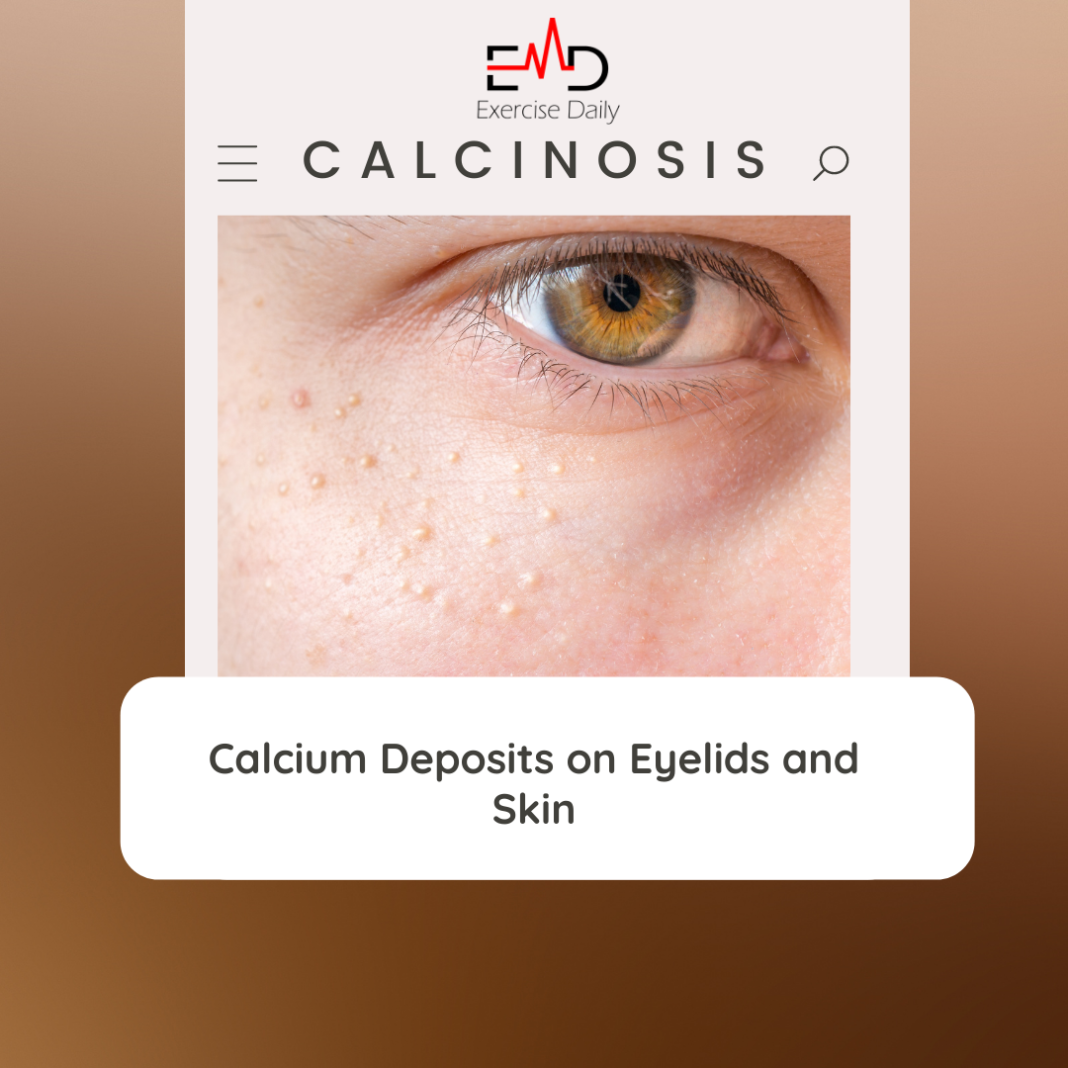Exercise Daily – After a hard day at work, you finally settle down to unwind at night. When you finally sit down in that comfortable chair, a constricting feeling creeps up your legs. This forces you to get up and move about. You surely need to have vitamins for restless legs!
Can you sleep while your legs are nagging you to get up and walk?
What is Restless Legs Syndrome and How Does it Manifest itself?
In addition to restless legs syndrome (RLS), which is also known as Willis-Ekbom illness, is a disorder that produces unpleasant feelings, which are most often felt in the legs.
It has been characterized as tingling, crawling, or creeping emotions, and they are accompanied by an overpowering need to move.
RLS symptoms often manifest themselves when the individual is sitting, resting, or sleeping. Most frequently, they occur at night. Periodic limb movements of sleep (PLMS) are the motions induced by restless leg syndrome (RLS).
RLS may create major sleep issues as a result of the movements it causes.
Some individuals suffer from primary RLS, which is a condition for which there is no recognized etiology. The other condition known as secondary RLS is most often connected with nerve issues, pregnancy, iron shortage, and chronic kidney failure.
The majority of individuals who suffer from RLS have just minor symptoms. It may have a significant influence on your quality of life if your symptoms are moderate to severe. Moreover, it makes it difficult to get adequate sleep, which can lead to difficulties with daily concentration.
It is possible that RLS may cause worry and sadness as a consequence of these issues. Therefore, it is essential to take vitamins for restless legs. Moreover, it has the potential to spread to other regions of your body, including your arms and legs.
Possible Causes
The first step in dealing with RLS should be determining what is causing it in the first place. Sometimes RLS may be a result of situations that are mostly beyond your control, such as heredity or pregnancy.
However, there are other probable causes that can be addressed to alleviate the symptoms. They might include everyday routines, drugs you are taking, health issues you have, or other circumstances.
Habits
Caffeine, alcohol, and cigarette use may all exacerbate the symptoms of RL. Keeping these things to a minimum may help to alleviate your RLS symptoms.
Medications
Certain drugs have the potential to induce or exacerbate RLS symptoms. Examples include the following:
- Antihistamines (Diphenhydramine)
- Anti-nausea medications (Metoclopramide, Prochlorperazine)
- Antipsychotic medications (Haloperidol, Olanzapine)
- SSRIs (Fluoxetine, Sertraline, Escitalopram)
- TCA (Amitriptyline, Amoxapine, Tramadol)
- Levothyroxine
Make sure your doctor is aware of any medications you are taking, including prescription and over-the-counter medications. Consider discussing the possibility with your doctor that one of your drugs is making your RLS worse.
Diseases Affecting One’s Health
RLS has been associated with end-stage renal (kidney) disease, often known as ESRD, as well as nerve damage caused by diabetes. It is also a result of iron deficiency anemia, which is a common occurrence. Therefore, iron and vitamins for restless legs are the best treatment options.
Other Triggers
People who suffer from RLS report that consuming a lot of sweets or wearing tight clothes makes their symptoms worse.
Management of Restless Legs Syndrome
Sleeping habits
Having healthy sleep habits is a must for everyone. It is possibly more important for those who have difficulty sleeping, such as those who suffer from RLS.
While improving your sleep may not completely eliminate your RLS symptoms, it may be able to reduce the amount of sleep you lose as a result of your disease. Take advantage of the following suggestions to ensure that your sleep is as comfortable and restorative as possible.
- Try to go to bed and wake up at the same time every night
- Maintain a cool, calm, and dark sleeping environment
- Keep distractions such as the television and phone minimum
For the two to three hours before you go to sleep, avoid using electronic devices such as computers and phones. The blue light emitted by these devices might interfere with your circadian rhythm, which helps you maintain a regular sleep cycle.
Exercise
Exercise If you suffer from RLS, you may find that it helps you feel better. According to the National Institutes of Health, moderate exercise may be beneficial in alleviating mild RLS symptoms. This is particularly beneficial with vitamins for restless legs.
Aerobic exercise and lower body resistance training performed three times per week for 12 weeks greatly reduced the symptoms. Other studies have also shown that exercise is quite useful for RLS, particularly in those with end-stage renal disease (ESRD).
Yoga and Stretching
Yoga and stretching activities help to boost their mood as well as lessen their stress levels. They may result in better sleep. Similarly, stretching exercises make a substantial difference in the RLS symptoms of persons who were on hemodialysis treatment.
Massage
Massage of your leg muscles may be beneficial in alleviating your RLS symptoms. It enhances circulation, which may explain why it has such a positive impact on RLS patients. Massage has the extra benefit of promoting relaxation, which may assist in the improvement of sleep quality.
Hot and Cold
Having a hot or cold bath before bed, as well as putting hot or cold packs to your legs before going to sleep might help restless legs. Some people’s RLS symptoms are exacerbated by cold, whilst others are exacerbated by heat. You might have to try which options work best for you.
Treatment Options
Vitamin D Supplementation
It is quite simple to develop a Vitamin D deficiency, especially if you reside in a colder region. This is because you do not get enough sunlight. Nothing helps better than vitamins for restless legs.
Vitamin D is an incredibly vital vitamin that performs several critical tasks throughout your body. In contrast to other vitamins, it has a hormone-like effect. It is recognized by a large number of cells in your body. When your skin is exposed to sunshine, your body converts cholesterol into vitamin D3.
Some foods, such as fatty fish and fortified dairy products, contain vitamin D. Adults should strive for 1,500–2,000 international units (IUs) of vitamin D per day. These are some of the foods that have high levels of Vitamin D:
Foods containing Vitamin D
- Fat-rich fish
- Egg yolks
- Fortified cereals
- Milk
- Yogurt
- Beef
Vitamins C and E Supplementation
Vitamins C and E are safe and efficient therapy for lowering the severity of RLS in hemodialysis patients.
Foods containing Vitamin E
- Pumpkin and sunflower seeds
- Almonds and peanuts
- Greens such as beet greens, collard greens, and spinach
- Red bell peppers
Foods containing Vitamin C
- Citrus fruits
- Peppers
- Potatoes
- Strawberries
- Broccoli
- Brussels sprouts
Vitamin C really aids in the greater absorption of iron by the body. Low iron levels are also a contributing factor to RLS.
Iron Supplementation
In addition to vitamins for restless legs, iron also plays an important role. RLS is assumed to be caused by an iron deficiency, which is one of the most common reasons. Iron supplementation may assist to alleviate the symptoms of RLS.
A simple blood test may be used to check for iron deficiency. So if you suspect that you may be suffering from this condition, speak with your doctor.
If you are found to be deficient in iron, your doctor may prescribe that you take oral iron supplements. In certain circumstances, intravenous (IV) iron therapy may be required. In the event that you are experiencing signs of iron deficiency anemia such as the following:
- A constant weariness that doesn’t get better after sleep
- Skin discoloration
- Irregular heartbeats
- A feeling of being out of breath
- Dizziness or lightheadedness
- Pain in the chest
- Cold hands and feet
When you consume meals that contain iron, include citrus fruits in your meal. Vitamin C will help your body absorb iron more effectively. Avoid consuming dairy products with iron-containing meals. It may interfere with the absorption of iron.
Foods containing Iron
- Dried fruit
- Nuts
- Wholemeal pasta and bread
- Legumes (mixed beans, baked beans, lentils, chickpeas)
- Dark leafy green vegetables (spinach, silverbeet, broccoli)
- Oats
Prescription Medicines
Medication is an important component of the treatment of moderate to severe RLS. Dopaminergic medicines are often the first-line treatments to accompany vitamins for restless legs.
Despite the fact that they are beneficial in alleviating RLS symptoms, they might produce adverse effects and other complications.
Dopaminergic Medicines
Dopaminergic medicines work by increasing the amount of dopamine released in your brain. Dopamine is a substance that aids in the proper function of the body’s motions. The use of dopaminergic medications may be beneficial in the treatment of RLS symptoms.
This is because restless legs are related to issues in the generation of dopamine by the body. Some of the drugs to help restless legs are as follows:
- Pramipexole
- Ropinirole
- Rotigotine
While dopaminergic medications have been demonstrated to be effective in alleviating RLS symptoms, long-term usage has been reported to exacerbate symptoms. This is referred to as the augmentation phenomenon.
Other Medicines
Doctors often administer the lowest feasible dosage of these medications to assist postpone the onset of this condition.
- Gabapentin
- Benzodiazepines (Clonazepam)
- Opioids
Targinact, a prolonged-release oxycodone/naloxone combination, is one opioid that may be effective in alleviating RLS symptoms and improving sleep. However, because of the stricter recommendations for the use of opioids, this should only be used as a last option.
Because of the potential of abuse and dependency associated with these medications, they should be used under the supervision of a doctor.
Alternative Ways to Deal with Restless Legs
Apart from vitamins for restless legs, there are alternative options for dealing with the symptoms.
Working the night shift
Since RLS is linked to the body’s circadian cycles and worsens at night, working into the wee hours may help. It is possible that staying active at night provides relief throughout the day.
However, before making any changes to your schedule, consult with your healthcare provider: This is because staying up all night might have additional negative health repercussions than sleep deprivation.
Traveling patterns
Sitting motionless for lengthy periods of time may be difficult for persons suffering from restless legs syndrome. It is best to schedule long vehicle rides and plane trips during the early morning hours.
It is particularly important for international flights or journeys that include a time zone shift. This is because these variables further disrupt your body’s normal rhythmic functions.
Standing workstation
There are several modifications available for the conventional desk. Many individuals now work standing up at a workstation that resembles a podium. The fact that it promotes circulation throughout the body may also be beneficial for RLS sufferers.
Avoid caffeine
Reducing caffeine consumption helps alleviate the symptoms of RLS. Numerous patients have indicated that ceasing to consume the stimulant has been beneficial.
Read: How far can humans see?
Frequently Asked Questions
How to stop restless legs immediately?
Try out the following remedies along with vitamins for restless legs:
- Baths and massages
- Muscle relaxation by soaking in a warm bath
- Apply hot or cold packs
- Good sleeping schedule
- Exercise
- Caffeine avoidance
- Use a vibrating pad or a foot wrap to relieve stress.
How should I sleep when my legs are restless?
- Regular and moderate exercise may be beneficial for improving sleep quality
- Warm-up before going to bed
- Avoid nicotine and caffeine in the hours before bedtime
- Maintain a regular sleep routine
Does elevating your legs help with restless legs?
Yes, maintaining legs in an elevated position helps to relax nerves in the legs and minimize compression. It greatly reduces the likelihood of RLS happening.
Do compression socks help restless leg?
Wearing compression socks to treat restless leg syndrome has many advantages, two of which are increasing blood flow and massaging the leg muscles.
At a low level of graded pressure (in the 15-20 mmHg compression range), restless leg syndrome patients may experience significant alleviation and benefit.
Take Away
RLS may cause substantial pain, sleep disorders, and difficulties with everyday functioning. Thus, it is important to get treatment as soon as possible.
The initial step should be to experiment with the at-home remedies on this list such as vitamins for restless legs. However, if they are unable to assist you, you should see your doctor. Your doctor may offer you further information on each of these therapies.
Keep in mind that what works for one person may not work for another. Therefore, you may need to experiment with a variety of medicines or therapies before finding one that works.




